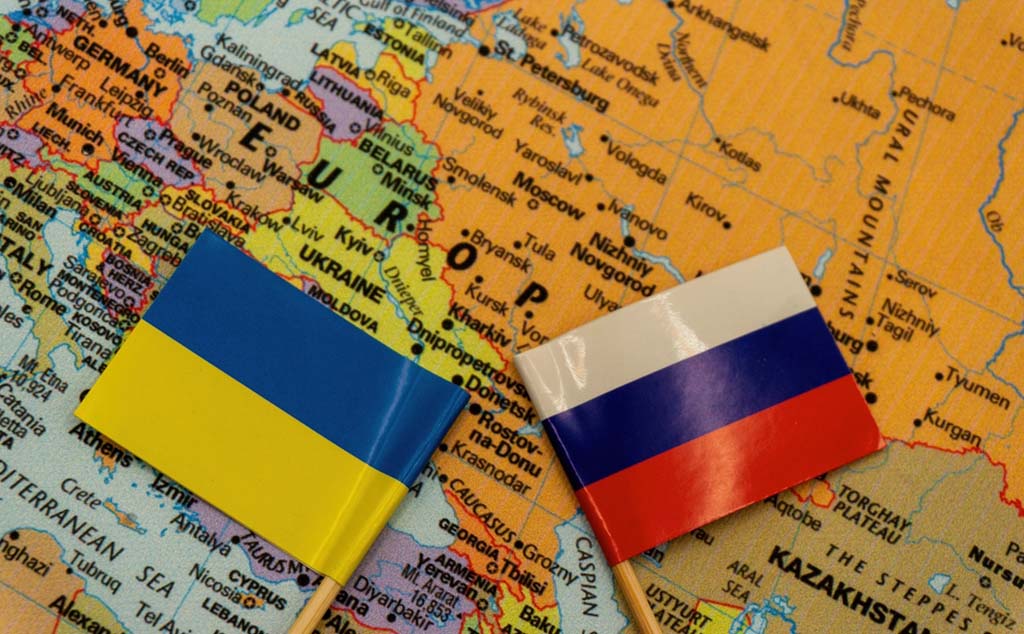
The Economic Ripple Effects of the Ukraine-Russia Conflict: A Global Perspective
The Ukraine-Russia conflict, a significant geopolitical event, has sent shockwaves through both local and global economies. This aims to unpack implications of this ongoing conflict, focusing on how it has reshaped economic landscapes, altered trade dynamics, and influenced global financial markets. Understanding these impacts is crucial for businesses, policymakers, and individuals alike, as they navigate through these turbulent times.
The Genesis of the Conflict
Russia and Ukraine share deep historical and cultural ties, dating back centuries. Ukraine has been part of the Russian empire and the Soviet Union for long periods in history. The collapse of the Soviet Union in 1991 saw Ukraine gaining independence, a development that was viewed with unease by many in Russia, who continued to see Ukraine as part of its historical sphere of influence.
The Ukraine-Russia conflict has its roots in a complex mix of historical, cultural, and political factors. The annexation of Crimea by Russia in 2014 marked a significant escalation in tensions and led to a protracted conflict in Eastern Ukraine. This situation has not only created a humanitarian crisis but also had far-reaching economic consequences.
The sudden invasion of Ukraine by Russia in 2022 marked a dramatic escalation in a conflict that had been simmering for years. Understanding why Russia decided to undertake such a significant and aggressive military action requires examining a range of strategic, historical, and geopolitical factors.
Strategic Considerations
Ukraine’s strategic importance to Russia cannot be overstated. It holds significant geopolitical value due to its location, acting as a buffer state between Russia and the expanding influence of Western institutions like NATO and the European Union. The prospect of Ukraine moving closer to the West, potentially even joining NATO, was seen as a direct threat to Russian national security interests.
The NATO Expansion Argument
One of the primary reasons cited by Russia for its aggressive stance towards Ukraine is the eastward expansion of NATO. Since the end of the Cold War, several former Soviet states and Eastern Bloc countries have joined NATO, which Russia views as a direct encroachment towards its borders and a violation of promises made during the dissolution of the Soviet Union.
Putin’s Vision for Russia
Russian President Vladimir Putin has long harbored ambitions to restore Russia’s influence and status as a global superpower. Reasserting control over Ukraine can be seen as part of this broader strategy to defy the West and rebuild Russia’s sphere of influence in the post-Soviet space.
Impact on Ukraine’s Economy
Ukraine’s economy has been severely affected by the ongoing conflict. Key impacts include:
- Destruction of Infrastructure: The conflict has led to massive destruction of physical infrastructure, disrupting industrial production and logistics.
- Decline in Foreign Investment: The uncertainty and risks associated with the conflict have deterred foreign investors, further straining the economy.
- Displacement of People: The conflict has caused significant internal displacement, leading to a loss of labor and consumer markets within affected areas.
- Agricultural Disruptions: Ukraine, known as the “breadbasket of Europe,” has seen its agricultural sector, a significant GDP contributor, severely impacted.
Russia’s Economic Fortitude and Vulnerabilities
Russia’s economy, while showing resilience, faces several vulnerabilities due to the conflict:
- Sanctions Impact: Western sanctions have targeted key sectors, including finance, energy, and defense, hampering economic growth.
- Dependence on Energy Exports: The economy’s heavy reliance on oil and gas exports presents a risk amid fluctuating global energy prices and potential sanctions.
- Capital Flight: The geopolitical instability has led to capital flight and a weakening of investor confidence in the Russian market.
Global Economic Implications: A Ripple Across Continents
The conflict has significant global economic implications:
Energy Markets Disruption: Turbulence in Global Markets
Russia is a major player in global energy markets, particularly in natural gas. The conflict has led to heightened volatility in energy prices, affecting global markets and energy-dependent economies.
Food Security Concerns: From Fields to Global Tables
Ukraine and Russia are significant producers of wheat and other grains. The conflict has disrupted supply chains, posing a risk to global food security, especially in countries reliant on these imports.
Trade, Sanctions and Counter-Sanctions
The imposition of sanctions on Russia and the latter’s counter-sanctions have disrupted international trade patterns, affecting global supply chains.
Financial Markets Volatility
Global financial markets have experienced increased volatility due to the conflict, affecting investments, pensions, and savings globally.
The European Perspective – Economic Challenges Amid Conflict
Europe has been particularly impacted due to its geographical proximity and economic ties with both Ukraine and Russia:
- Energy Dependency: Many European countries rely heavily on Russian energy exports, particularly natural gas, making them vulnerable to supply disruptions.
- Economic Sanctions: While sanctions are aimed at pressuring Russia, they also have economic implications for European countries implementing them.
- Refugee Influx: The conflict has led to a significant influx of refugees into European countries, presenting both humanitarian and economic challenges.
The Ripple Effect in Emerging Markets: Confronting the Conflict’s Economic Shockwaves
Emerging markets, particularly those with close economic ties to Russia and Ukraine or those dependent on energy and food imports, face heightened risks:
- Currency Fluctuations: Emerging market currencies have been impacted by the global risk aversion, affecting their economies.
- Trade Disruptions: Countries reliant on trade with the conflict region face disruptions in supply chains and trade flows.
Long-Term Global Economic Considerations
The conflict might reshape long-term global economic trends:
- Energy Transition: Increased focus on energy security may accelerate the transition to renewable energy sources.
- Supply Chain Diversification: Companies may seek to diversify their supply chains to mitigate risks.
- Geopolitical Realignment: The conflict could lead to a realignment of global economic and political alliances.
The Role of International Organizations: Seeking Economic Stability in Turbulent Times
International organizations like the IMF, World Bank, and UN are playing crucial roles in mitigating the economic impact of the conflict:
- Humanitarian Aid: Providing support for refugees and displaced persons.
- Economic Assistance: Offering financial aid and loans to affected economies.
- Policy Guidance: Advising governments on managing the economic fallout.
The Path to Economic Recovery: Economic Strategies in a Post-Conflict Era
Economic recovery in the post-conflict era will require concerted efforts:
- Rebuilding Infrastructure: Significant investments in rebuilding destroyed infrastructure will be crucial.
- Stimulating Economic Growth: Implementing policies to stimulate growth and attract investment.
- Supporting Affected Populations: Focusing on the welfare of populations affected by the conflict.
Adapting to a Shifting Economic Landscape: The Way Forward in a Conflict-Ridden World
In conclusion, the Ukraine-Russia conflict not only has deep-rooted political and social implications but also profound economic consequences that extend far beyond the borders of the involved nations. Understanding these impacts is essential for businesses, governments, and individuals as they adapt to a rapidly changing global economic environment. While the path to recovery may be long and fraught with challenges, resilience, adaptability, and international cooperation will be key to overcoming the economic hurdles posed by this conflict.



